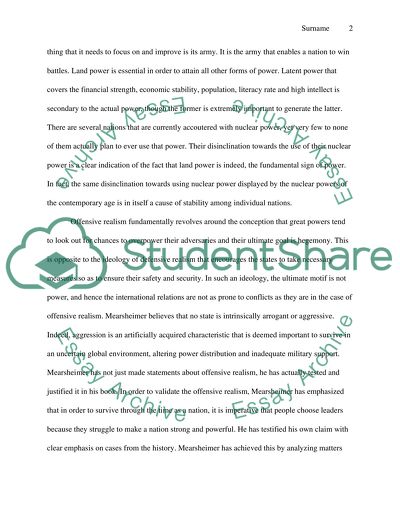Cite this document
(“Critical review of John Mearsheimer's The Tragedy of Great Power Essay”, n.d.)
Retrieved from https://studentshare.org/environmental-studies/1404697-critical-review-of-john-mearsheimer-s-the-tragedy
Retrieved from https://studentshare.org/environmental-studies/1404697-critical-review-of-john-mearsheimer-s-the-tragedy
(Critical Review of John Mearsheimer'S The Tragedy of Great Power Essay)
https://studentshare.org/environmental-studies/1404697-critical-review-of-john-mearsheimer-s-the-tragedy.
https://studentshare.org/environmental-studies/1404697-critical-review-of-john-mearsheimer-s-the-tragedy.
“Critical Review of John Mearsheimer'S The Tragedy of Great Power Essay”, n.d. https://studentshare.org/environmental-studies/1404697-critical-review-of-john-mearsheimer-s-the-tragedy.


